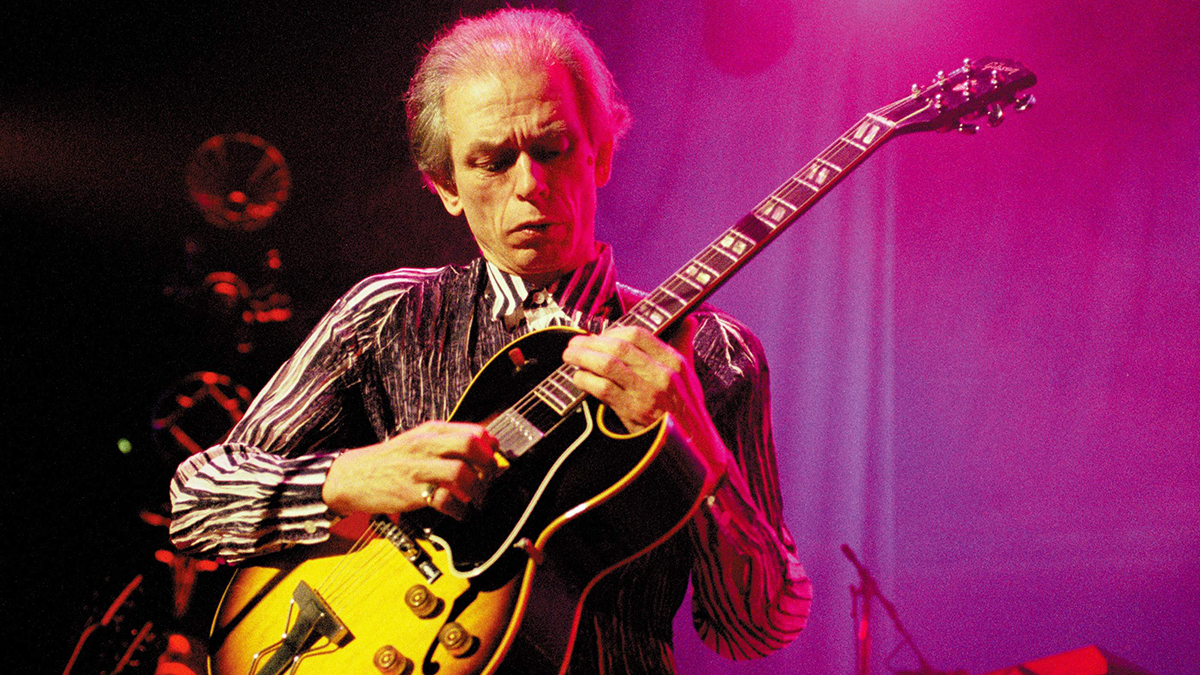Tommy Henriksen: "When you play with a Kemper, you hear every little mistake, and that alone forces you to be a better player"
The Alice Cooper guitarist discusses what he's learned from the shock-rocker, how AC/DC informed his new project Crossbone Skully, and why he's a Gibson SG man through and through
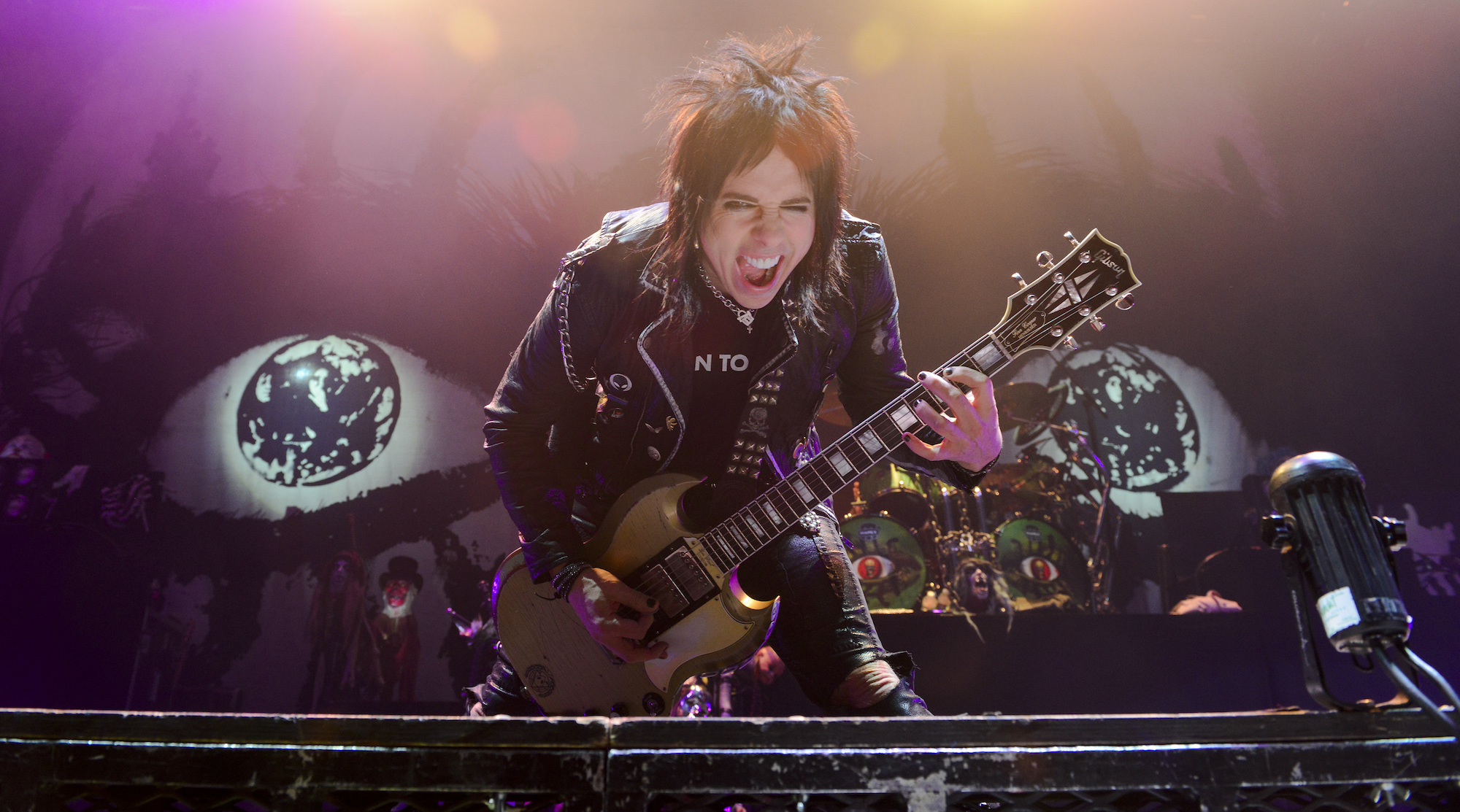
Having worked with everyone from Lady Gaga to George Lynch to Lou Reed, few in the game today have managed to parlay simplicity into groundbreaking success in the way Tommy Henriksen has.
Though he began his career as a bassist, as he's pushed forward, Henriksen has become part of a three-headed guitar monster alongside Ryan Roxie, Nita Strauss, and now, Kane Roberts, in the Alice Cooper band. With a deep love for rock music, Henriksen provides a sturdy bedrock upon which Cooper lays his madness.
"I don't take myself too seriously up there," Henriksen quips. "People forget the magic of keeping things simple. You don't have to go up there and blow everyone away – there's just no need for it. Don't get me wrong, I love big guitars and fun stuff as much as the next guy – it's fun to watch, and it's incredible what some guys can do. But I like to strip things back and keep myself more in line with the things that Chuck Berry, Keith Richards and Malcolm Young did. That's what appeals to me."
Now more than a decade into his shock-rock odyssey, Henriksen has become a mainstay in Cooper's band. Simple as his styling may be, from the beginning, the Long Island native has inserted himself into the songwriting mix, co-writing seven songs on Cooper's 2011 album, Welcome 2 My Nightmare. Since then, he's remained a key cog in Cooper's songwriting machine.
Through the years, Henriksen has also managed to release five solo records. While all of these solo outings have held meaning to the veteran six-stringer, none spoke to him in quite the same way that his latest project, Crossbone Skully, has. Indeed, it seems that Henriksen is pooling from all his tried-and-true influences as he prepares – if only for a moment – to let his SG take a back seat as he steps behind the microphone.
"I can't express how proud I am of Crossbone Skully," Henriksen beams. "I'm expressing myself through the music I love, and that's everything to me. I also like that it's almost a concept record commenting on the state of the world.
"The world is fucked up, and honestly, morality is pretty much dead, and that's what a lot of these songs are about. You've got all these fucking dirty politicians, and they're all crooks and corrupt, and all they think about is themselves. I just wanted to get out there and try and make some music that combats all the lies but also kicks ass."
All the latest guitar news, interviews, lessons, reviews, deals and more, direct to your inbox!
Taking a moment away from the madness, Henriksen dials in with Guitar World to recount the beginnings of Crossbone Skully, his origins as a bassist, the trials of being a self-taught guitarist, the beauty of keeping it simple, and his undying love for Gibson SGs.
Tell me about Crossbone Skully.
"It started when [Alice Cooper drummer] Glen Sobel and me would be soundchecking and running through different songs we'd been working on here and there. This was stuff that we came up with in between the Hollywood Vampires and Alice Cooper shows. I've always been a huge AC/DC guy, and so when I started thinking about writing these songs, that's the sound that came to me.
"So, one day, we're at soundcheck, messing around with these songs, and the lighting guy comes over and says to me, 'Yo, dude, are you fucking around, or are you doing this for real?' It's not like I expected anything to come of it, so I said to him, 'Nah, man, I'm fucking around. I used to sing this stuff a long time ago in clubs. It's nothing.' And he was like, 'No, man, you should be doing this. It's fucking good.'
"I was like, 'Shit... maybe there's something here.' And then, I went home, wrote a couple of songs, and I was like, 'I dig this. You know what? I'm gonna do it.'"
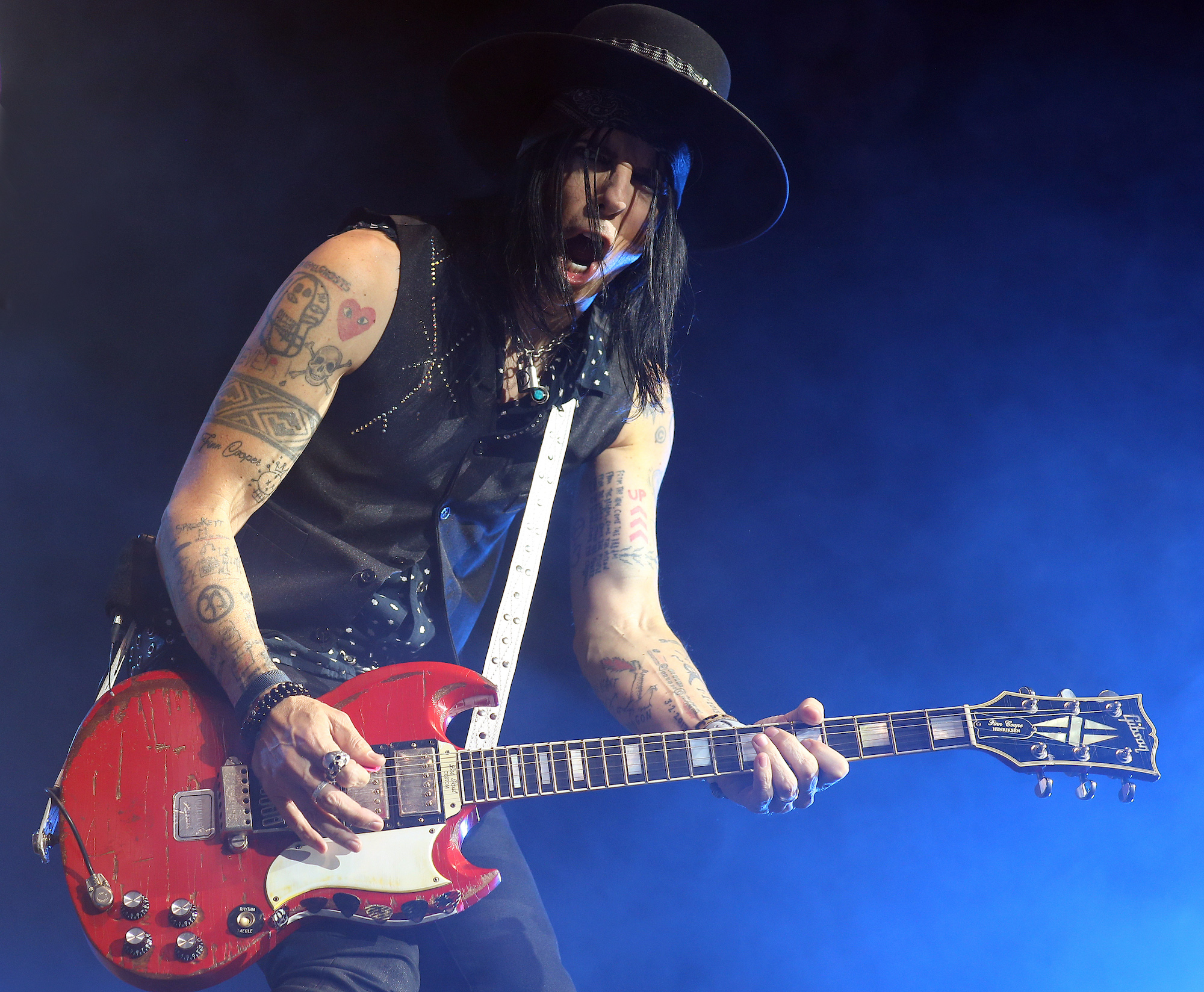
After being a member of an ensemble for so long, are you comfortable stepping out front as a lead vocalist?
"I've been waiting to do this for a long time. I'm ready, man. I'm ready to get up and sing. I love playing guitar, but I want to do more than just play guitar. A lot of people ask me, 'Is it weird stepping out from behind the guitar?' And the truth is that I'm cool with it; I can't wait to get that thing off my neck. Give me the microphone. Let's go.
"I think I'm one of the best karaoke singers out there. I really do. I told you I love AC/DC, so my whole thing is I basically want to be Bon Scott with Crossbone Skully.
"He's the ultimate rock 'n' roll singer for me. Bon has always been one of my heroes since I was a kid. Bon had it all – the charisma, the sex appeal, and the punk-meets-hard-rock vibe. And lyrically, he had a rawness to what he was saying that has always spoken to me. He was so clever and a true hero of mine."
As I understand it, you're playing bass on these tracks. How does your approach change as you transition from guitar to bass?
"People know me as a guitar player, but the truth is that I started as a bass player when I was a kid. So, it's good to get back to bass and get in touch with that side of myself again. When I started with Alice Cooper, I was a bass player and switched to guitar. What happened was, I was working with Alice and Bob Ezrin when Alice was recording Welcome 2 My Nightmare, and we were writing a whole bunch of songs.
"At one point, Alice was like, 'Hey, Tommy, do you play guitar? We could use more guitars here.' And I was like, 'Uh, not really, but if you need me to, I can learn.' So, I pretty much started playing guitar right then and there with Alice Cooper when he asked me to. But I was never gonna take lessons or anything like that – that's not me.
"So, I started watching old Angus Young and Chuck Berry videos, and that's how I figured guitar out. I learned all I needed to know from those videos. True story."
Mutt Lange came out of retirement as an executive producer for this [Crossbone Skully] record, right?
"Yes. Mutt Lange, to me, is the best producer who has ever lived. He's all-time. He's like a phenomenon when it comes to hard rock music. It's one of those things where I can't explain it because, with Mutt, it's not even genius – it's some other level of mastery. He's almost like this godly entity in the studio, man. Whenever he does anything, it goes to another level, and I do feel he elevated the Crossbone Skully songs.
"I was blessed that he heard a few of the tracks I was working on, and he basically said, 'Okay, there's something here.' And then, he called me up out of the blue, and he's like, 'I'd like to fool around with a few of the tracks,' and it went from there. Working with him has been a dream come true for me."
How has working with Alice Cooper shaped your approach to songwriting?
"Let me say this, working with Alice Cooper and Bob Ezrin has been a privilege. I mean it – they're special, and it's been an education I never would have gotten anywhere else. Those guys have taught me so much about songwriting, analyzing lyrics, and writing interesting guitar and bass patterns. Alice, man, he's so clever, which is something I don't think people realize. Bon was an influence on me early, but Alice shaped me in a lot of ways, later.
"Then there's the whole live aspect of Alice, too. Being on stage with him and watching how he conducts himself – he sets the template for how [to] handle your business as a live performer. What people don't realize about Alice is that he's so damn genuine, and he can't help but be himself on stage, which is where he's in his element, anyway. But as far as songwriting and all that stuff, I've learned so much from those guys.
"Working with them, I learned how to outline things and get organized. And then there are things, production-wise – like where to place things and how to structure them. Working with a guy like Bob can be tough, but for me, it's like a dream because you learn these things that you'd never learn anywhere else."
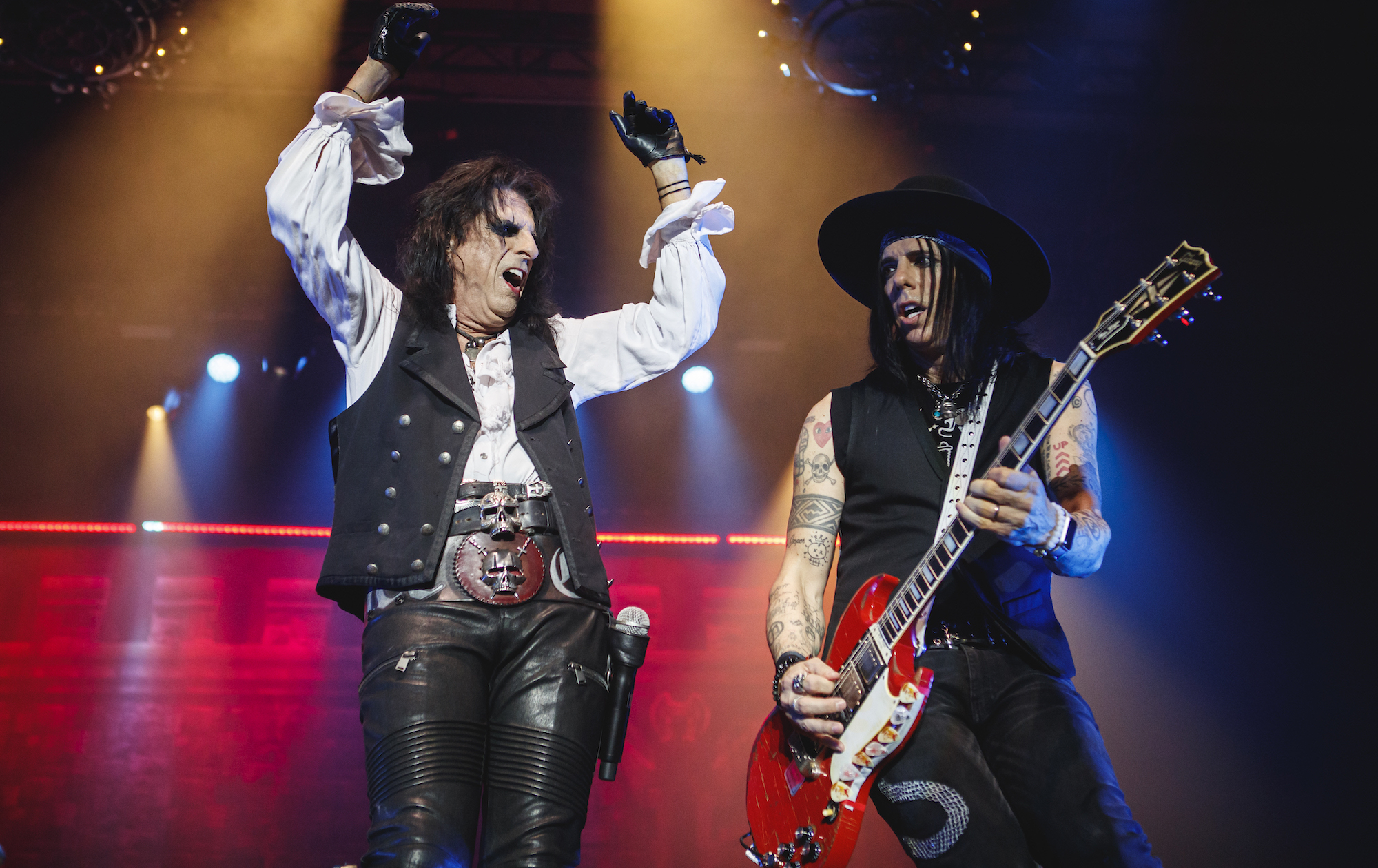
As a self-taught guitarist, how would you describe your approach?
"Simplicity, my man. Simplicity. There are a lot of guys who can shred like lightning out there, and that's cool and all, but I think it takes genius to simplify. And the flip side to that is that it takes an idiot to complicate!
"So, I'm always looking to make everything simple because, the way I see it is, when it comes to simplicity, there's an art to it. Now, that art is evolving, and I'm still trying to figure it out, but I know what I like and what I'm trying to do. For me, it has to be really simple.
"I sound like a broken record, but I'll go back to AC/DC, who everyone looks at like it's the easiest shit in the world to play. But, let me tell you, Malcolm and Angus Young are true guitar heroes, and there is a genius to that stuff. When you start dissecting it and picking it apart, that shit is not easy to play. It's complicated.
"Even if you can play it, the issue of getting the sound right comes into play. I'll tell you what – simplicity is genius, and it's all in how you execute it. That's the whole thing. So, while other guys are showing off, I'm over here trying to figure out, 'How do I make this stuff simple without making it complicated?'"
Do you keep it simple in terms of guitars and amps, too?
"Yup, I do. I've always used Gibson guitars and Marshall amps. I like to keep it old school and simple there, too. I love that sound. There's nothing better. But for the last couple of tours, we've been using these Kemper profilers, which I have a Marshall loaded into. So, the sound is consistent every night, but it's definitely different than having a traditional stack of amps behind me.
"As far as guitars are concerned, I love my Gibson SGs, and I have the EverTune system installed on them. I have to say, that EverTune is incredible to the point that I never have to tune my guitar. It's pretty amazing. The whole setup works because, when it comes to live, it's about being consistent with the sounds. As much as I love the old Marshalls, we had to change the tubes constantly to keep them consistent."
When I talked to Kane Roberts and Ryan Roxie, they had differing opinions on Kempers. What are your thoughts on the matter?
"I can only speak for myself, but I'll tell you that when you're playing with a Kemper, it's much harder to get comfortable, because you hear every little nuance in each earpiece. It's weird, and it was an adjustment at first, but now I believe it's made me a better player.
"If you look at a traditional amp, when it's going, it's loud, and a lot of things get buried in the sound, and that gets forgiven. But when you play with a Kemper, you hear every little mistake, and that alone forces you to be a better player.
"I mean, I guess you could ignore it and not improve, but that would just be lazy [Laughs]. I would love to play with a real amp, that's my preference, but it is what it is, and it does make me a better player."
Why is the Gibson SG your preferred weapon of choice?
"I love a good vintage SG, man. There's just something magical about those guitars. If you know, you know. I guess, with the Gibson SG, I love the way it looks and the way it feels. I've got the silver '61 SG that I've been seen around with a lot, and it fits me like a glove. It's a three-pickup custom job, and the main reason I use this one is to honor Glen Buxton from the original Alice Cooper band. But I have a couple of new ones, too, and I gotta tell you, the new Gibsons are fucking great.
"They're so great that I leave all my vintage stuff in the studio now and take the new guitars on the road. If these newer ones are this great, why risk my old guitars? So, lately, I've been using a '98 SG, and I've got a 2016 one I just bought. It plays and sounds great, so I'm okay out on the road with the new stuff, even if I do prefer vintage, in general."
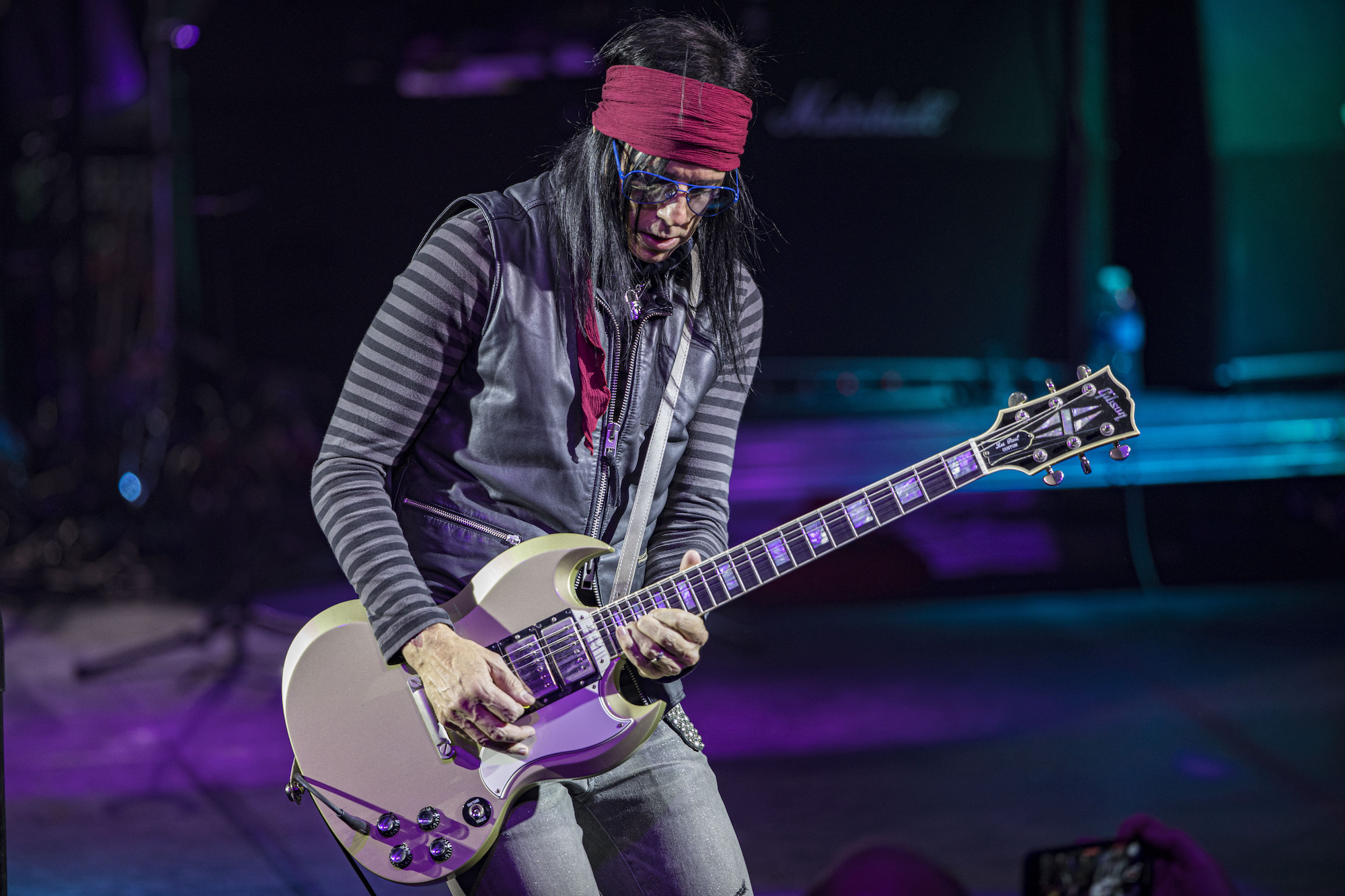
Which of your guitars means the most to you?
"It's definitely my Fender Precision bass that I've had since I was 13 years old. I bought that thing for, like, $50, and I've never had the heart to let it go. I'm not sure how, but it's literally the only guitar or bass I've managed to hold onto throughout my career.
"I'll never let it go at this point; it just means too much to me. Aside from that bass, my '61 Gibson SG would be the other guitar that means the most to me. I keep that thing close to me when I'm at home, which is why it's sitting here with me now." [Laughs]
What's next for you in all lanes?
"Next up for me is the Alice Cooper tour, and then we've got another Hollywood Vampires tour after that. As far as Crossbone Skully, we've got a bunch of new singles coming out, so I'm looking forward to that train running down the line and screaming off the tracks. If the singles do as well as I expect them to, hopefully, we'll tour the Crossbone Skully stuff after the Hollywood Vampires tour is done. But if that does happen, I'll have to put a band together, which I'm really excited about.
"I'd like to see if I can find a bunch of hungry young players and empower them to get out there with me and play some badass rock music. I'd like to give some kids a shot and set them up for success in their careers. Paying it forward is important, so I'm looking forward to all that and watching Crossbone Skully succeed."
Andrew Daly is an iced-coffee-addicted, oddball Telecaster-playing, alfredo pasta-loving journalist from Long Island, NY, who, in addition to being a contributing writer for Guitar World, scribes for Bass Player, Guitar Player, Guitarist, and MusicRadar. Andrew has interviewed favorites like Ace Frehley, Johnny Marr, Vito Bratta, Bruce Kulick, Joe Perry, Brad Whitford, Tom Morello, Rich Robinson, and Paul Stanley, while his all-time favorite (rhythm player), Keith Richards, continues to elude him.

